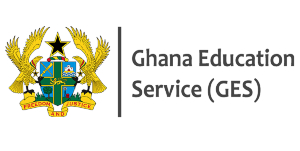Claim
Not wearing a mask in public places is a criminal offence – viral social media messages
The viral WhatsApp message is legislation issued on 6 April 2020 in Kenya for offenders who contravene the rule to properly wear masks in public places. Neither the government of Ghana nor any mainstream media in Ghana have so far communicated such information.
Full text
Subsequent to the lifting of the partial lockdown by the president of Ghana, Akufo-Addo, the government announced enhanced measures to control the spread of the Coronavirus in Ghanaian communities. One of such measures includes the wearing of nose masks by citizens in public places.
This measure has further been enforced with a compulsory ‘No Mask, No Entry’ policy in public places by the Greater Accra Regional Minister, Ishmael Ashitey, in a press statement and by authorities in other parts of the country.
A viral message circulating on WhatsApp and other platforms in the country takes this further. It states that failure to wear a mask in public places is a criminal offence liable to a fine of 20,000 or 6-month imprisonment or both. The full message reads:
“It has finally been gazetted. Failure to wear a mask while in a Public place is actually a criminal offence. Section 6(1)(b) as read with section 11 of the Regulations. If found guilty you can be liable to a fine of 20,000/= or imprisonment for 6 months or both. Failure to wear a mask in a means of public or private transport and public transport operators Section 5(4) must wear mask. So don’t say you were not warned. Share widely with friends so that they should not leave the house without a mask. Public place means stepping outside your house. So, take precautions.”
Verification
Dubawa found that the same post has been shared on Facebook with comments indicating that the message originates from Kenya.
Further checks show the legislation was enacted in Kenya and not Ghana as the messages sought to suggest.
Google checks revealed that Kenyan media outlets here, here, and here published articles on the penalty of not wearing face masks between 9 and 15 April 2020.
Their publications indicated that the Kenyan government had issued a gazette stating that citizens were required to wear a proper nose mask that covers their mouth and nose. Anyone who contravened the rules was considered to have committed an offence liable to a fine not exceeding 20,000 shillings, imprisonment not exceeding 6-months or both.
Dubawa further found a copy of the Kenya Gazette Supplement No 41, a special issue on 6 April 2020, which according to some Kenyan media here, here was signed by the Health Cabinet Secretary, Mutahi Kagwe.
The photo below shows the section of the Kenya Gazette which states: the rule to wear a proper nose mask to cover both nose and mouth (4), an act of offence if it is contravened (5) and the penalty of a fine not exceeding 20, 000 shilling, imprisonment not exceeding 6 months or both if the offence is committed (11)
 Screenshot of the legislation found online
Screenshot of the legislation found online
Dubawa also noted that the viral WhatsApp message purported to be a new legislation in Ghana states the fine of 20, 000 and does not include the currency of Ghana (cedis) to it.
Meanwhile, the government of Ghana has not issued any official statement to communicate this purported new legislation on the penalty of not wearing masks in public places. Neither has any mainstream Ghanaian media published on such information.
Conclusion
The viral message circulating on Ghanaian WhatsApp outlets threatening to fine and or imprison offenders who fail to wear masks in public places is misleading. The message is new legislation on a Public Health Act against Coronavirus in Kenya, issued on 6 April 2020. Neither the government of Ghana nor Ghanaian mainstream media have conveyed any such information to citizens.
Nonetheless, though the failure to wear masks may not be a criminal offence in Ghana, Ghana still has a compulsory ‘No Mask, No Entry’ directive for entering public places, to help control the spread of the virus in the county.
General News of Tuesday, 19 May 2020
Source: ghana.dubawa.org

















